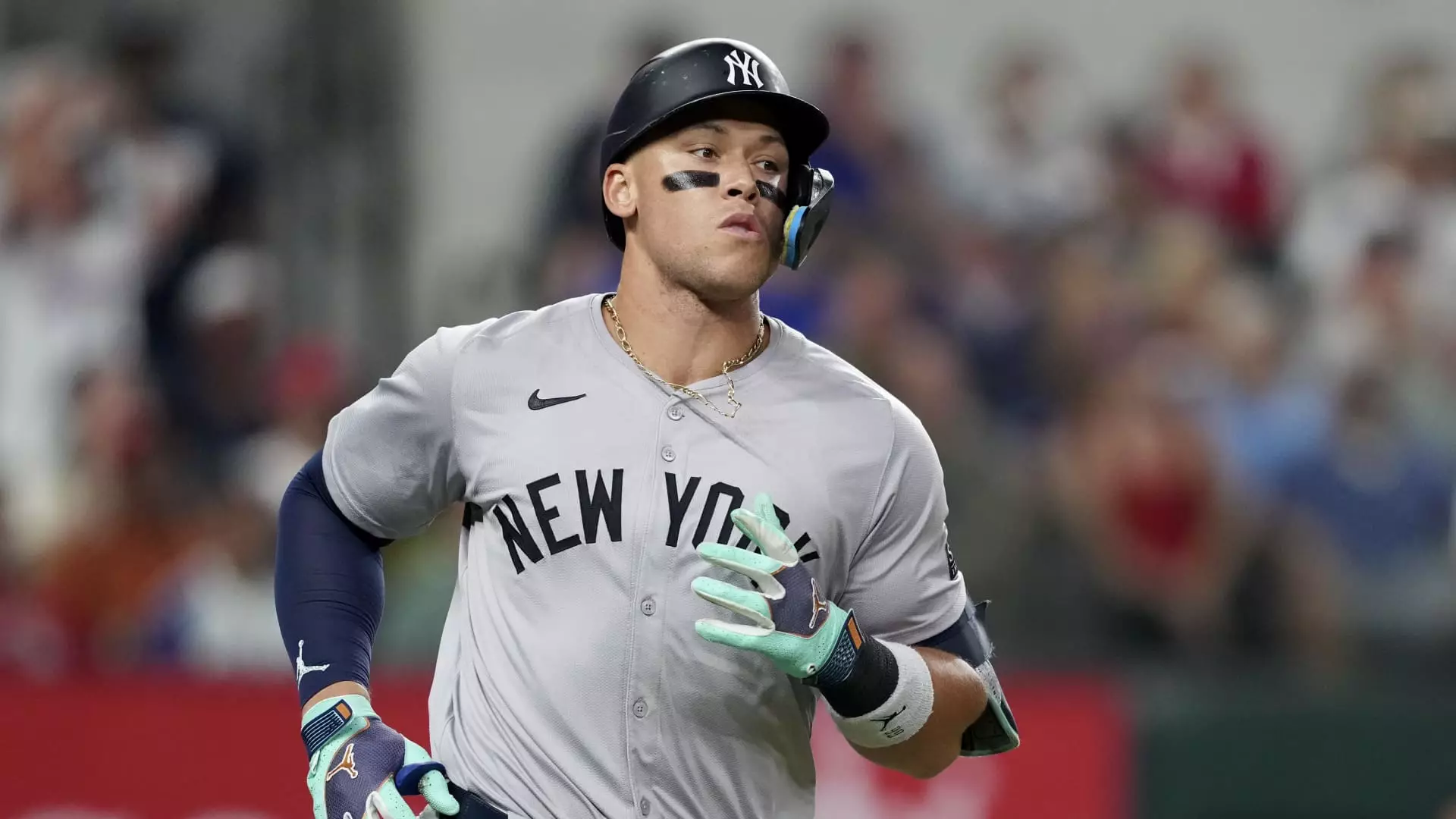Major League Baseball (MLB) is experiencing a significant revival this postseason, as evidenced by staggering viewership numbers. The opening match of the National League Championship Series (NLCS) between the New York Mets and the Los Angeles Dodgers garnered an average of 8.26 million viewers across Fox Sports platforms, marking the highest ratings for an LCS game since 2009. Similarly, the American League Championship Series (ALCS) matchup between the New York Yankees and Cleveland Guardians witnessed a 4% increase in viewership from 2023, attracting 3.9 million viewers. These figures stand in contrast to the growing concerns regarding baseball’s diminishing cultural presence, particularly among the younger demographic, who are perceived to have shorter attention spans.
Despite competing with the popular NFL games airing on the same nights, MLB has managed to capture the attention of a large audience. The noticeable uptick in viewership follows a successful Division Series, in which the American League Division Series averaged 3 million viewers, showcasing a remarkable 20% increase from the previous year. The National League Division Series also reported an upward trend, indicating a broader trend of increased engagement and interest in the sport.
In an environment where the cultural relevance of baseball appeared to be waning, MLB has proactively introduced numerous measures to rekindle interest among fans. Changes to game mechanics, including a pitch clock and new rules aimed at increasing the pace of play, have resulted in shorter, more dynamic games that resonate with today’s audience. The league’s focus on in-game action and enhancing viewer engagement appears to be yielding fruitful results, demonstrating a commitment to addressing the concerns surrounding younger generations’ engagement with traditional sports.
MLB Commissioner Rob Manfred recently noted the significant uptick in fan engagement metrics, attributing much of this success to the league’s reforms and emphasis on renowned athletes like Shohei Ohtani and Aaron Judge. These star players are essential in elevating the profile of MLB, particularly in high-stakes matchups like the potential World Series showdown between their respective teams, the Dodgers and Yankees, should both win their respective series. Such narratives draw in viewers, suggesting that the age-old rivalry between two historic teams could deliver a much-anticipated spectacle.
The postseason’s excitement has also been fueled by notable turning points and unforgettable moments contributing to team narratives. For instance, the Mets’ resurgence in June was sparked by an unexpected event—a McDonald’s mascot, Grimace, throwing a first pitch, which seems out of the ordinary for traditional sports but resonates with the modern fan’s desire for light-hearted content intertwined with competitive excitement. On the other hand, the Guardians’ late-season surge, spurred by a stellar performance from Jose Ramirez, exemplifies how individual accolades can shift the fortunes of entire teams.
As the postseason unfolds, with the Yankees currently leading the Guardians 2-0 and the Mets-Dodgers series tied, the drama is palpable. It’s a stark reminder of how unpredictable and thrilling baseball can be, despite concerns of dwindling interest. Events such as these not only capture the essence of competitive sports but also intrinsically link player stories with the broader narrative of each season, enhancing the overall appeal.
With the positive trends in viewership and attendance, MLB appears to be on a promising trajectory. However, it remains crucial for the league to persistently innovate and adapt to shifting viewer preferences. The emphasis on quick-paced games and the promotion of standout athletes are commendable strides, but a sustainable model will require continuous engagement with younger fans and cultivating a community around the sport that encourages deeper investment beyond just the games.
Ultimately, the convergence of historic rivalries, star players, and dynamic changes represents a vital chapter in Major League Baseball’s story. As the postseason roll continues, the league will have to balance nostalgia for its traditional roots with the demand for modernized experiences, making sure to sustain this wave of enthusiasm for the seasons to come.

